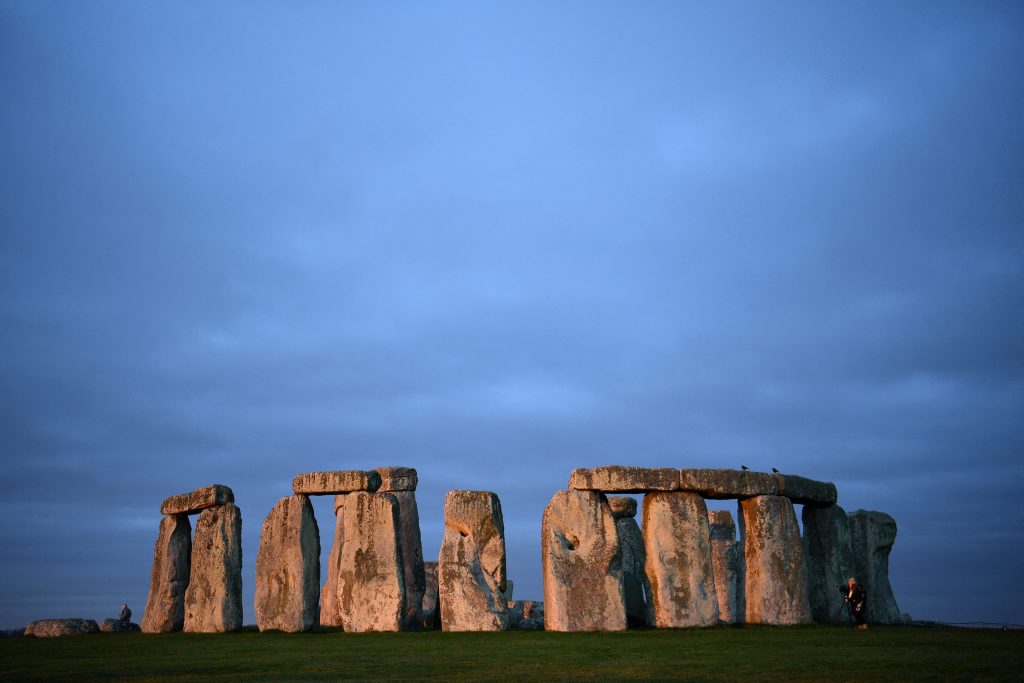Archaeology & History
Defenders of Stonehenge Finally Get Their Day in Court Amid Years-Long Battle
The group will argue against a major government road tunnel project in a London courtroom.

The group will argue against a major government road tunnel project in a London courtroom.

by
Brian Boucher

A diverse group of archaeologists, environmentalists, historians, and druids will argue together at a London courtroom on December 12, protesting a major government road construction project near one of the world’s greatest cultural heritage sites. Defenders of Stonehenge will argue before a high court that a planned road tunnel will do permanent damage to the landscape and to the ancient monument.
There has been vigorous debate since the Tory government announced plans for the new road in 2017 and launched an official investigation. Though planning inspectors at the time said that the tunnel would cause “permanent, irreversible harm,” then-transport secretary Grant Shapps approved the project.
This is the last chance for opponents to the plan to make their case in court, reports the Guardian.
Supporters of the tunnel say it will reduce traffic on the A303, a nearby road that runs from England’s southeast to its southwest, which currently has only one lane in each direction and is known for traffic jams. They say that it will improve the site by moving automobile traffic farther away.
But critics say it will damage the site’s physical integrity, and indeed UNESCO has threatened to strip the monument of its World Heritage Site status if the plan goes ahead.
Opponents also claim that the government’s estimated price for the project, about $2.13 billion, is low, and that it will actually cost in the region of $3.14 billion.
In response to a lawsuit by the Save Stonehenge World Heritage Site campaign (SSWHS), which is part of the Stonehenge Alliance, a judge determined in 2021 that transport secretary Shapps’s decision was “unlawful,” saying there was no consideration of the integrity of each individual element of Stonehenge and pointing out that no alternatives had been discussed as part of the investigation.
In summer 2023, however, a new transport secretary, Mark Harper, approved a slightly modified version of the plan.
SSWHS sued again, seeking a judicial review and arguing that the government should give greater weight to concerns from UNESCO, which says that the western entry of the tunnel would have “significant and inappropriate adverse impacts on the physical and visual integrity of the property.” The body urged the government to move the western entry as far west as possible.
“It’s arrogance from the government,” the druid King Arthur Pendragon told the Guardian. “The inspectors have said it’s a bad idea, but the government has just ignored them and decided they’ll bloody well do what they want to do. Ridiculous.”
Opponents of the new tunnel point out that the site will no longer be visible from the A303 roadway, which they describe as one of the greatest views Britain has to offer. The site will also be less accessible as a result, archdruid Lois Lloyd, speaking for Female Druids United and Open Access to Stonehenge, told the Guardian.
More Trending Stories:
Inspector Schachter Uncovers Allegations Regarding the Latest Art World Scandal—And It’s a Doozy
Archaeologists Call Foul on the Purported Discovery of a 27,000-Year-Old Pyramid
A Polish Grandma Found a Rare Prehistoric Artifact—And Kept It Quiet for 50 Years
Art Critic Jerry Saltz Gets Into an Online Skirmish With A.I. Superstar Refik Anadol
Your Go-To Guide to All the Fairs You Can’t Miss During Miami Art Week 2023
The Old Masters of Comedy: See the Hidden Jokes in 5 Dutch Artworks
David Hockney Lights Up London’s Battersea Power Station With Animated Christmas Trees